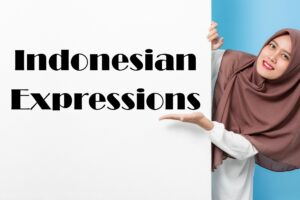Indonesia, a vibrant archipelago nation spanning thousands of islands, is brimming with diverse cultures, traditions, and historical richness. With an estimated population of over 270 million, it is the world’s fourth most populous country. It boasts a cultural diversity that is as wide as its geographical spread. The fascinating facts about Indonesian culture embody the essence of this harmonious diversity and paint a vivid portrait of the nation’s unique heritage. Let’s delve deeper into the heart of Indonesian culture and discover some of its most intriguing aspects.
A Culture Shaped by History and Geography
One of the remarkable Indonesian cultural facts is that the nation’s cultural identity has been shaped significantly by its geography and history. The Indonesian archipelago, a chain of over 17,000 islands, is home to hundreds of ethnic groups with unique customs, languages, and ways of life. This incredible diversity has led to a rich cultural tapestry, reflected in the country’s national motto, “Bhinneka Tunggal Ika,” which means “Unity in Diversity.”
Historically, Indonesia has been a bustling hub for trade routes, drawing influences from India, China, the Middle East, and, later, European colonial powers. The harmonious blend of these influences is visible in Indonesia’s vibrant cultural mosaic.
Unique Customs and Traditions
Indonesia’s cultural diversity is mirrored in its multitude of customs and traditions. For example, the Toraja community in Sulawesi is known for its unique and elaborate death rituals. At the same time, the Dayak tribes of Borneo are recognized for their longhouse communal living.
Another example is the Balinese Hindu culture, which, despite being a minority religion in Indonesia, is exceptionally prominent due to its unique fusion of animistic, Buddhist, and Hindu influences. The island of Bali is renowned for its traditional ceremonies, vibrant arts scene, and distinctive temples.
The Influence of Religion on Indonesian Culture
Religion plays an integral role in shaping Indonesian culture, with the majority of the population identifying as Muslim. Indonesia is, in fact, the largest Muslim-majority country in the world. However, the country is officially recognized as a secular state, with six official religions: Islam, Protestantism, Catholicism, Hinduism, Buddhism, and Confucianism. These religions have uniquely influenced local cultures, shaping social norms, traditions, and festivals.
For instance, you might find the Balinese Hindu culture, epitomized by its unique temple architecture and intricate rituals, coexisting harmoniously with the Islamic traditions in Java. The island of Flores is mainly Catholic, and Sumatra has a significant Buddhist population.
Indonesia’s Linguistic Diversity
Another highlight in the facts about Indonesian culture is its linguistic diversity. With over 700 regional languages spoken, Indonesia has a rich linguistic heritage. The official language is Bahasa Indonesia, a variant of Malay, and it’s used as a common language throughout the country. Bahasa Indonesia plays a crucial role in fostering a sense of national identity among diverse ethnic groups.
Cultural Richness in Art and Architecture
Indonesian culture is notably rich in art and architecture. The nation’s aesthetic expression manifests in various forms, from traditional music and dance to textiles and sculptures. Each ethnic group possesses its unique artistic styles and traditions, contributing to the overall cultural richness of Indonesia.
For example, Batik, an Indonesian method of wax-resist dyeing applied to whole cloth, is one of the most well-known forms of Indonesian art and has been designated a Masterpiece of Oral and Intangible Heritage of Humanity by UNESCO.
Its majestic temples and grand mosques portray the country’s architectural brilliance. The Borobudur Temple in Central Java, a UNESCO World Heritage Site and the largest Buddhist monument globally exemplifies intricate and sublime Indonesian architecture.
Indonesian Cuisine: A Melting Pot of Flavors
Food is a significant part of Indonesian culture, and the country’s cuisine is as diverse as its culture and geography. From spicy rendang in Sumatra and sweet gudeg in Java to the exotic babi guling in Bali, Indonesian cuisine offers a culinary journey like no other. Street food culture is vibrant, with warungs (small family-owned restaurants) and street food carts serving various delicious, affordable meals.
Traditional Clothing in Indonesia
Traditional clothing is another important aspect of Indonesian culture. The most well-known is the Batik, a fabric dyed using a wax-resist technique, which originated in Java. The patterns and designs on batik fabrics often have symbolic meanings and are worn for different occasions. In Sumatra, the women wear us, a traditional Batak cloth, while in Bali, it’s common to see women wearing kebaya, a conventional blouse-dress combination.
The Significance of Family in Indonesian Culture
Family is the cornerstone of Indonesian society, and strong bonds and mutual obligations characterize it. The Indonesian family structure is often large, encompassing immediate and extended family. Respect for elders is deeply ingrained in the culture, and it is common for several generations to live under one roof.
Indonesian Festivals and Ceremonies
Festivals and ceremonies are an essential part of Indonesian culture. One of the most notable is Eid al-Fitr, a celebration marking the end of Ramadan. In Bali, the most famous is Galungan, a Balinese holiday celebrating the victory of dharma over adharma. Meanwhile, the Javanese celebrate Sekaten, a week-long festival commemorating the birthday of Prophet Muhammad.
Conclusion: Facts About Indonesian Culture: What You Need To Know
Understanding these facts about Indonesian culture offers an enriching context for anyone looking to delve into the beautiful complexities of this archipelagic nation. From the diverse influence of religions, rich linguistic diversity, the country’s prowess in arts and crafts, its delectable cuisine, traditional clothing, the emphasis on family, and its vibrant festivals and ceremonies – all these elements combine to form the unique tapestry of Indonesian culture.
With this knowledge in your back pocket, you’ll be better prepared to appreciate the nuanced beauty of Indonesia’s culture fully. Whether planning a trip or merely being intrigued by global cultures, remember that respect and understanding are the keys to any cultural exploration. Therein lies the beauty of cultural diversity: it is not merely in the knowing but in understanding, appreciating, and ultimately, learning and growing. With its rich culture and heritage, Indonesia offers endless possibilities for such exploration.


